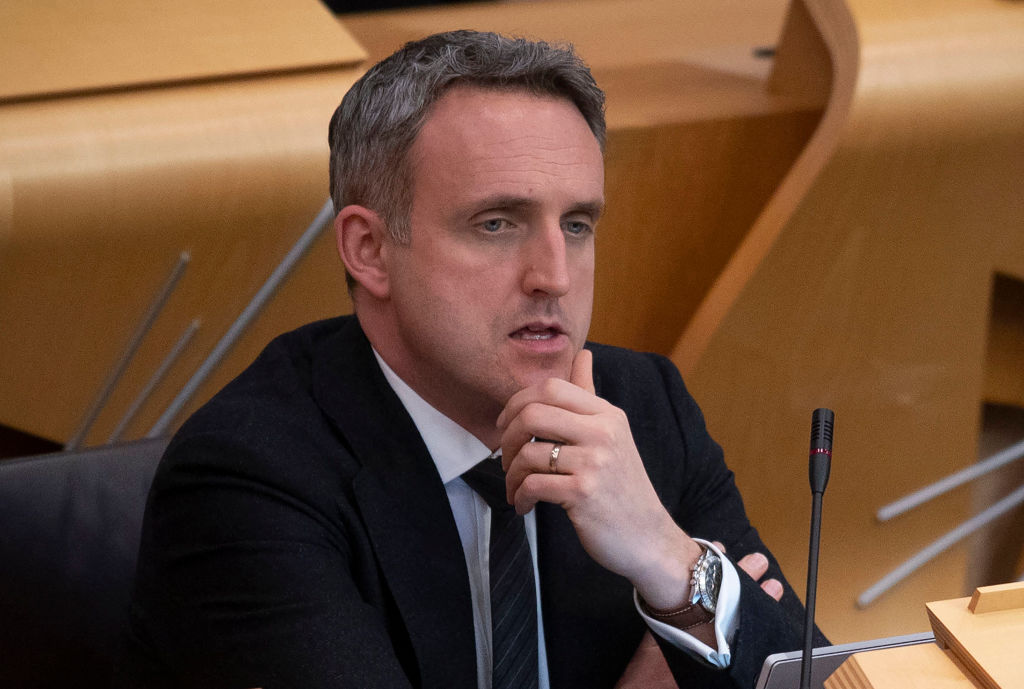As expected, Alex Cole-Hamilton has put himself forward to lead the Scottish Lib Dems, announcing his candidacy with an obligatory walking-and-talking video introducing himself to party members. It’s unclear whether anyone else will stand before the August 20 nominations deadline and it could well be that Cole-Hamilton wins by default. The rules certainly favour that outcome, with only Members of the Scottish Parliament allowed to stand, and the party having only four of those.
Cole-Hamilton represents a generational shift from outgoing leader Willie Rennie, an old-fashioned social democrat at a loss to keep up with — or, frankly, understand — the lively array of identity-centric grievances threatening to replace liberalism as the party’s guiding philosophy. Cole-Hamilton is very much part of that development but he is also capable, fluent, energetic and not above a bit of partisan shin-kicking.
Political parties can and do die and often it happens because they no longer have a clear reason for existing
Assuming he wins, he’ll have a full plate on the go. May’s local elections saw the Scottish Lib Dems turn in their worst performance of the Holyrood era, down on the first-past-the-post vote, the regional list and total seat tally. It could have been worse, of course. Beatrice Wishart saw her majority halved in Shetland, a one-time Lib Dem heartland where the SNP has grown its vote share by 30 percentage points over the last decade. The continuing electoral health of Nicola Sturgeon’s Nationalists, plus the upwards creep in support for her Green adjunct, has the potential to be lethal for the Lib Dems. Cole-Hamilton cannot afford to be complacent about these pressures. Political parties can and do die and often it happens because they no longer have a clear reason for existing.
Deciding the Scottish Lib Dems’ reason for existing will have to be a priority for the next leader. Although the party has recovered from the Coalition in membership terms — it dipped to 2,831 card-carriers in 2013 but was up at 5,260 in 2019, thanks no doubt to Brexit — it has still not moved past its overnight transformation from protest vote to pariah. Nick Clegg’s governing pact with David Cameron cost the Lib Dems dearly in Scotland and they have since struggled since to find their place in the political terrain.
There are a number of options open to them. They could position themselves as the party for young people — with an emphasis on home ownership, skills, post-Covid jobs and climate change — or as the party of liberty, alert to the dangers of vaccine passports, digital privacy, data collection and online regulation. They could champion political reform — independent committee chairs, an upper chamber for Holyrood, more scrutiny of ministers, overhauling the Crown Office — or take a swing at a fresh constitutional offering that appeals to soft nationalists and soft Unionists, though surely even the Lib Dems aren’t masochistic enough to plump for this option.
They don’t need to do anything revolutionary. They just have to remind the electorate that they exist and explain why that is. If their next leader can do that, they might finally be able to rebuild the party. Saying so is one thing but getting there is another. The party’s communications operation is anaemic, its digital presence barely perceptible and its strategy unfocused. It needs to recruit more and better parliamentary and council candidates and in particular women. The Scottish Lib Dems are the only party represented at Holyrood never to have had a female leader and across 22 years of the devolved parliament, only four women have served as Lib Dem MSPs.
The next Scottish Lib Dem leader will have to put in years of exacting, unglamorous slog and reform the party out of its complacent, aye-been, drain-circling ways. The rewards, if there are any, will be modest and it may even prove impossible to reassert a distinctive Lib Dem platform. It’s not hard to see why Alex Cole-Hamilton doesn’t face much competition for the job.







Comments